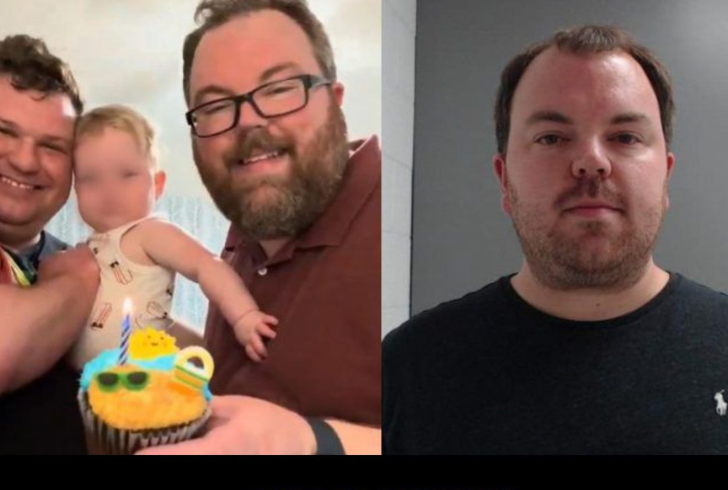Legal Loopholes in Surrogacy Let Convicted Offender Become a Parent
A recent case in Pennsylvania has drawn national attention to a dangerous gap in family law. It shows how current rules fail to prevent certain individuals, even those with troubling pasts, from gaining parental rights through surrogacy.
Brandon Keith Riley-Mitchell, a 39-year-old convicted sex offender, recently celebrated his baby’s first birthday with his husband, Logan Riley. Videos from the party spread quickly online, but what disturbed viewers wasn’t the decorations. It was learning that Riley-Mitchell remains on the state’s sex offender registry for crimes against children.
Unlike adoption, where background checks automatically disqualify offenders, surrogacy bypassed such safeguards. The couple crowdfunded thousands of dollars to pursue this path, which gave Riley-Mitchell full custody of a newborn despite his criminal history.

Instagram | @cordobagay.com.ar | A convicted sex offender celebrates a child’s birthday while raising legal concerns about surrogacy.
The Legal Loophole
Pennsylvania District Attorney Tim Barker admitted his office cannot intervene. Under current state law, registered sex offenders are not barred from becoming parents through surrogacy.
“Pennsylvania law currently does not, in and of itself, prohibit a registered sex offender from becoming a parent through surrogacy,” Barker said, adding that no one has reported criminal violations tied to the case. He urged lawmakers to review the matter, stressing the urgent need for reform.
This loophole means Riley-Mitchell’s conviction for child pornography and solicitation of a minor did not prevent him from raising a child. The absence of legal restrictions in surrogacy creates serious risks that adoption laws are designed to prevent.
Public Outcry
The case has sparked widespread outrage. More than 17,000 people have signed a petition demanding the child’s removal from Riley-Mitchell’s custody. Supporters argue that even if there is no evidence of harm yet, the very idea that a convicted offender can raise a child due to legal gaps is unacceptable.
Many see the case as a clear example of how outdated laws fail to keep up with modern reproductive practices. It highlights the need for legislators to align surrogacy rules with the same protections already enforced in adoption.
Questions About Oversight

Canva AI | Public outrage over legal gaps allowing a convicted offender to retain custody led to a massive petition.
Reports reveal that the surrogate’s husband admitted knowing Riley-Mitchell had “something in his past” but never asked further questions. He allegedly accepted the explanation that the issue had been “handled through the court system.” Critics argue this lack of due diligence placed a child in potential danger.
Meanwhile, Riley-Mitchell’s defense attorney, Peter Kratsa, insists his client completed his sentence, underwent counseling, and did nothing illegal in becoming a parent through surrogacy. While legally correct, that defense does little to ease public concern about child safety.
Calls for Reform Grow Stronger
This case exposes how modern technology and reproductive choices are advancing faster than family law. Without updated protections, children can be left vulnerable to unsafe environments. Lawmakers now face pressure to close this gap before more cases emerge.
The Riley-Mitchell case serves as a stark reminder, when legal systems fail to adapt, children’s safety hangs in the balance. Public demand for reform grows louder every day, and lawmakers may soon have no choice but to act.